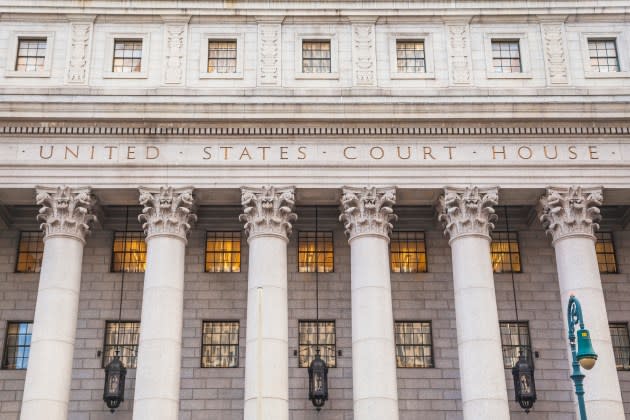John Grisham, George R.R. Martin And Other Writers Join Authors Guild In Class Action Lawsuit Against OpenAI

The Authors Guild, John Grisham, George R.R. Martin, Michael Connelly, Jodi Picoult and a group of other famous fiction writers filed a class action lawsuit on Wednesday against OpenAI, claiming that their technology is infringing on their works.
It’s the latest lawsuit to challenge AI’s use of copyrighted works as “training data” for their system.
More from Deadline
In their complaint, the authors claim that OpenAI copied their works “wholesale, without permission or consideration.” The plaintiffs contend that the company fed their works into large language models, “algorithms designed to output human-seeming text responses to users’ prompts and queries.”
“Generative AI is a vast new field for Silicon Valley’s longstanding exploitation of content providers. Authors should have the right to decide when their works are used to ‘train’ AI. If they choose to opt in, they should be appropriately compensated,” author Jonathan Franzen said in a statement. Read the complaint.
Other author plaintiffs in the case include David Baldacci, Mary Bly, Sylvia Day, Elin Hilderbrand, Christina Baker Kline, Maya Shanbhag Lang, Victor LaValle, Douglas Preston, Roxana Robinson, George Saunders, Scott Turow, and Rachel Vail.
According to the suit, when prompted OpenAI’s ChatGPT “accurately generated summaries” of works Grisham’s The Chamber, The Client and The Firm, as well as an unauthorized and detailed outline of the next installment of The King of Torts. The latter included a title, The Kingdom of Consequences, that used the same characters from the existing book. ChatGPT did the same for The Last Juror, and also generated an accurate summary of Grisham’s The Litigators, according to the lawsuit. ChatGPT “could not have generated the material” had it “not ingested and been ‘trained'” on Grisham’s works, the lawsuit stated.
The lawsuit seeks class certification, an injunction prohibiting their works from being used in the large language models without authorization, unspecified actual damages and, in the alternative, statutory damages of up to $150,000 per infringed work.
A spokesperson for OpenAI said via email, “Creative professionals around the world use ChatGPT as a part of their creative process. We respect the rights of writers and authors, and believe they should benefit from AI technology. We’re having productive conversations with many creators around the world, including the Authors Guild, and have been working cooperatively to understand and discuss their concerns about AI. We’re optimistic we will continue to find mutually beneficial ways to work together to help people utilize new technology in a rich content ecosystem.”
The litigation is only the latest filed by content creators over AI. In July, Sarah Silverman and two other authors sued OpenAI and Meta for copyright infringement. Barry Diller has said that he’s also organizing publishers for a class action lawsuit.
In a statement, Terrence Hart, general counsel of the Association of American Publishers, said of the latest litigation, “We agree that unauthorized use of literary works by AI developers presents serious questions of law that cannot simply be dismissed with assertions that the technology is ‘innovative.’ Innovative for whom? At what cost? Under what rules? We will follow the lawsuit closely.”
Best of Deadline
Sign up for Deadline's Newsletter. For the latest news, follow us on Facebook, Twitter, and Instagram.

 Yahoo News
Yahoo News 